A Mind For Numbers: How to Excel at Math and Science (Even If You Flunked Algebra)
Original price was: $56,99.$17,99Current price is: $17,99.
- 100% Satisfaction Guaranteed!
- Immediate Digital Delivery
- Download Risk-Free
✔ Digital file type(s): 1𝐏𝐃𝐅
The companion book to COURSERA®’s wildly popular massive open online course “Learning How to Learn”
Whether you are a student struggling to fulfill a math or science requirement, or you are embarking on a career change that requires a new skill set, A Mind for Numbers offers the tools you need to get a better grasp of that intimidating material. Engineering professor Barbara Oakley knows firsthand how it feels to struggle with math. She flunked her way through high school math and science courses, before enlisting in the army immediately after graduation. When she saw how her lack of mathematical and technical savvy severely limited her options—both to rise in the military and to explore other careers—she returned to school with a newfound determination to re-tool her brain to master the very subjects that had given her so much trouble throughout her entire life.
In A Mind for Numbers, Dr. Oakley lets us in on the secrets to learning effectively—secrets that even dedicated and successful students wish they’d known earlier. Contrary to popular belief, math requires creative, as well as analytical, thinking. Most people think that there’s only one way to do a problem, when in actuality, there are often a number of different solutions—you just need the creativity to see them. For example, there are more than three hundred different known proofs of the Pythagorean Theorem. In short, studying a problem in a laser-focused way until you reach a solution is not an effective way to learn. Rather, it involves taking the time to step away from a problem and allow the more relaxed and creative part of the brain to take over. The learning strategies in this book apply not only to math and science, but to any subject in which we struggle. We all have what it takes to excel in areas that don’t seem to come naturally to us at first, and learning them does not have to be as painful as we might think.
60 reviews for A Mind For Numbers: How to Excel at Math and Science (Even If You Flunked Algebra)
You must be logged in to post a review.

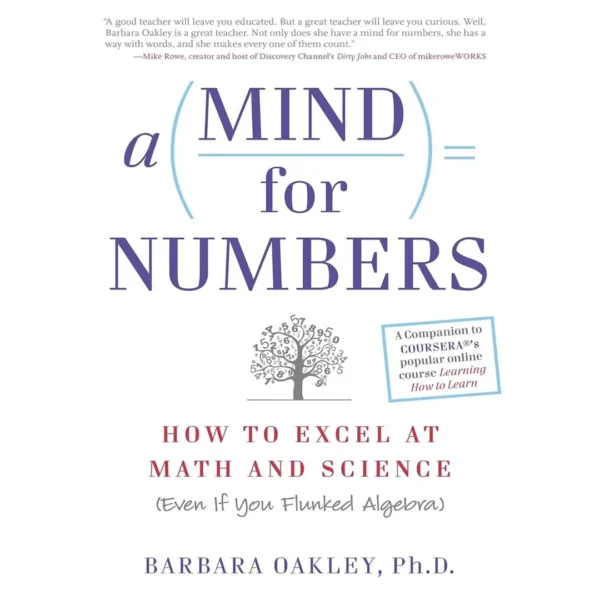
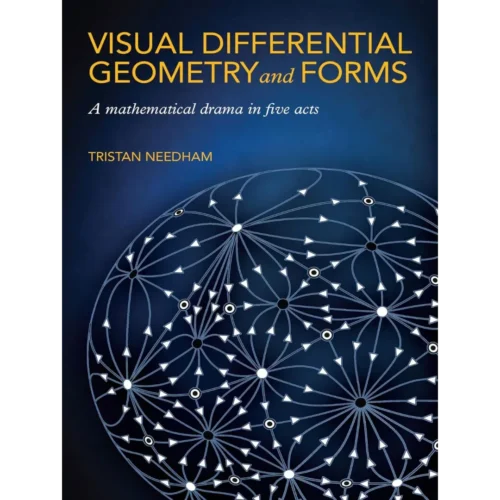
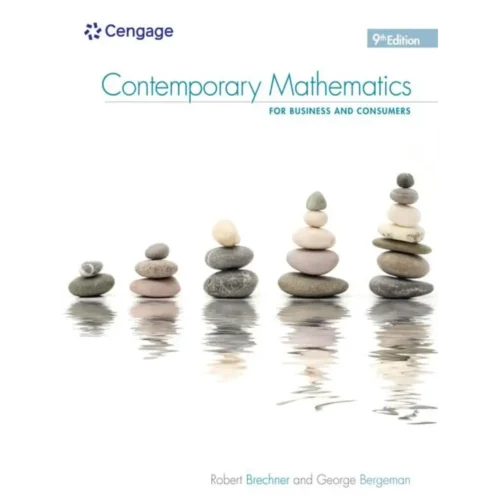
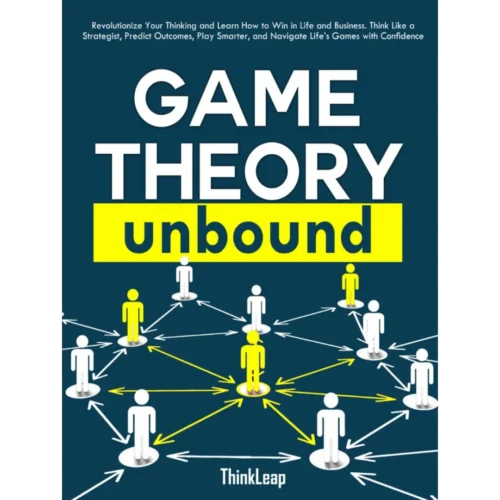
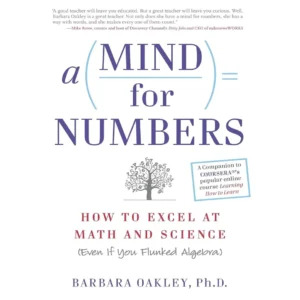
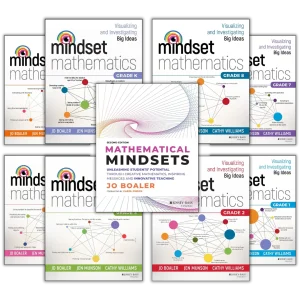
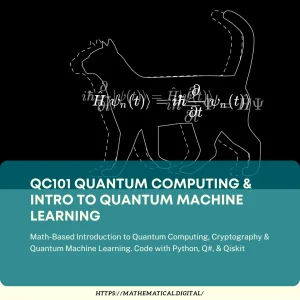
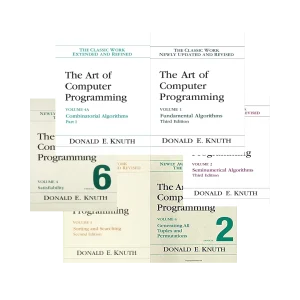
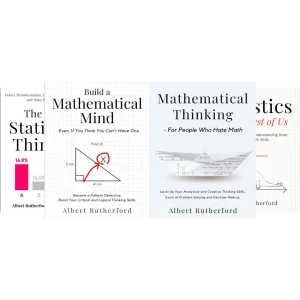
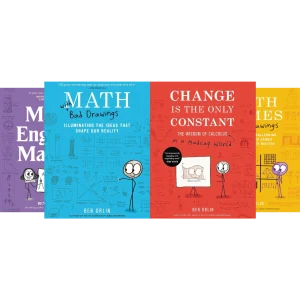
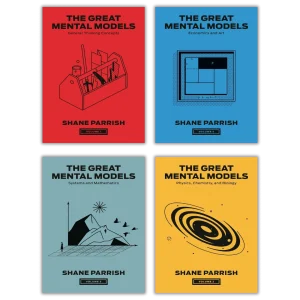
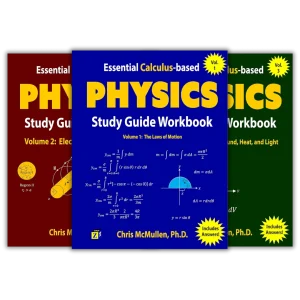

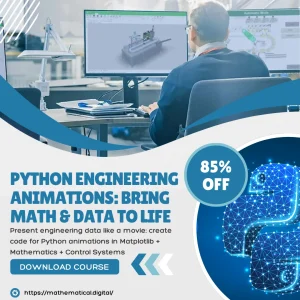
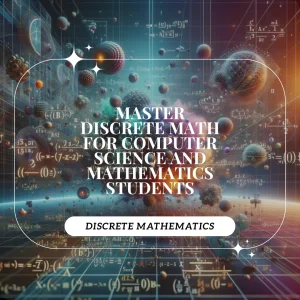
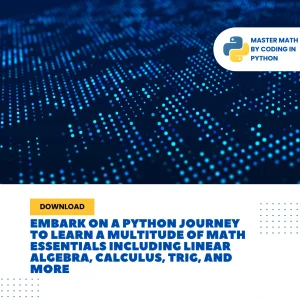
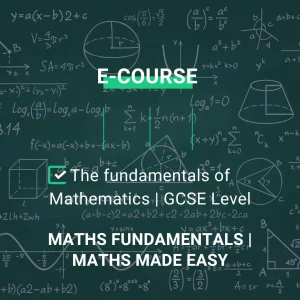
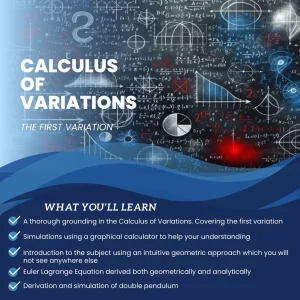
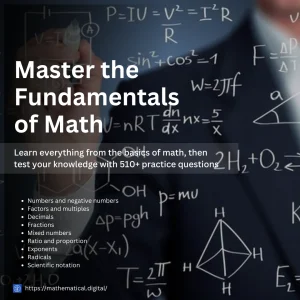
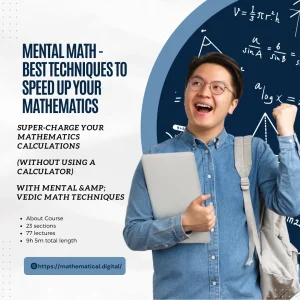

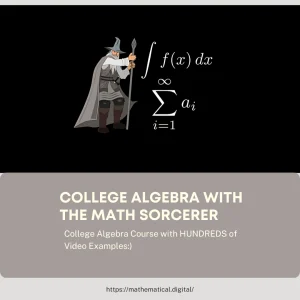
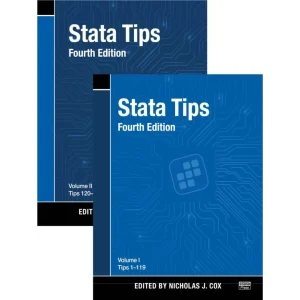
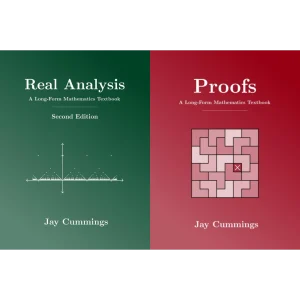
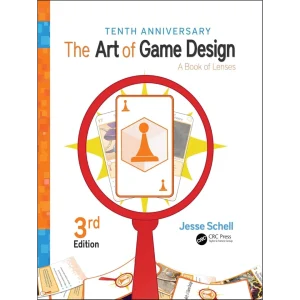
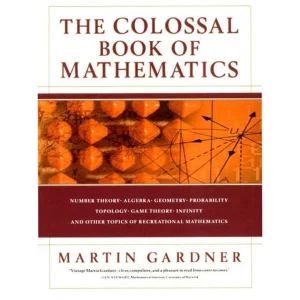
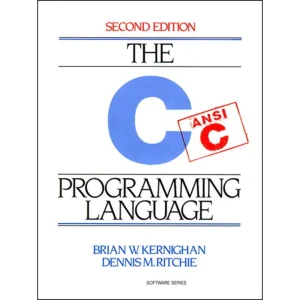
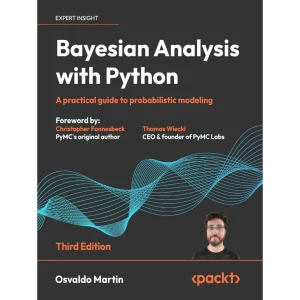
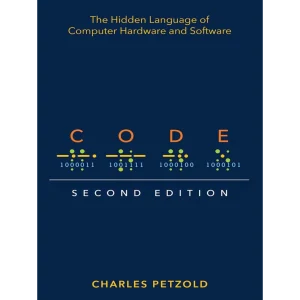
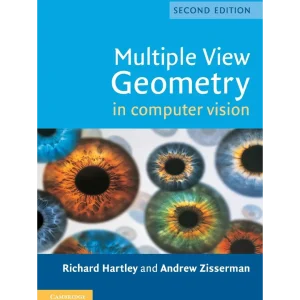

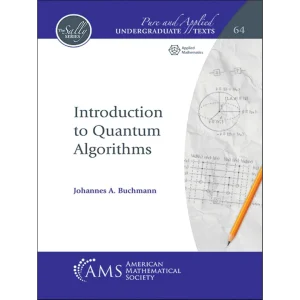
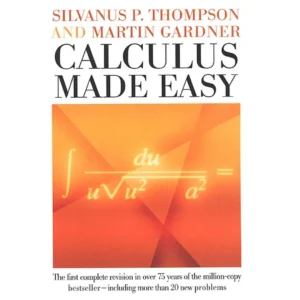
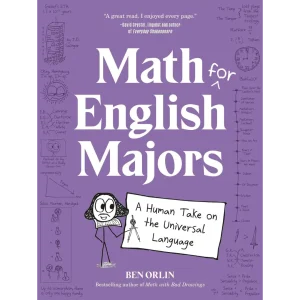
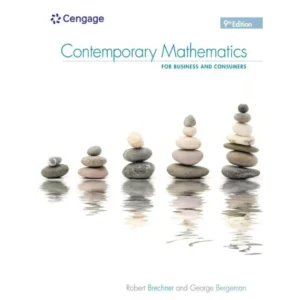
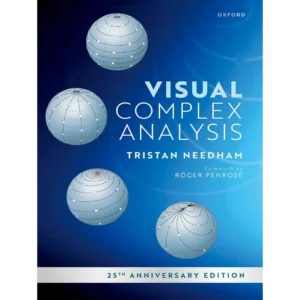
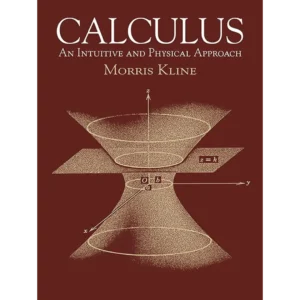

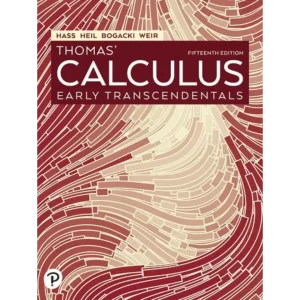
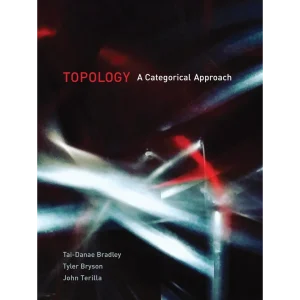
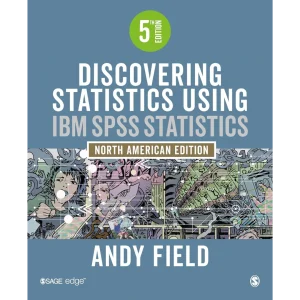
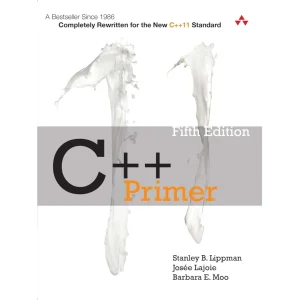
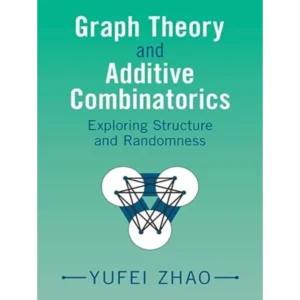
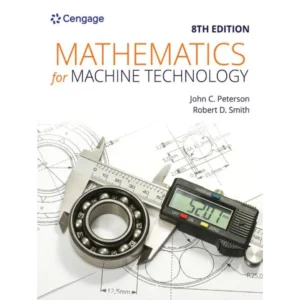
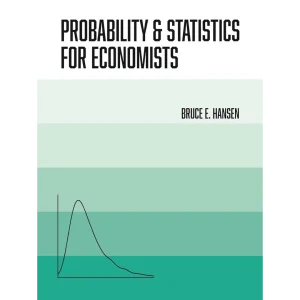
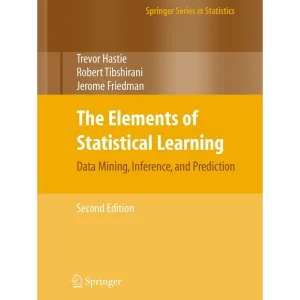
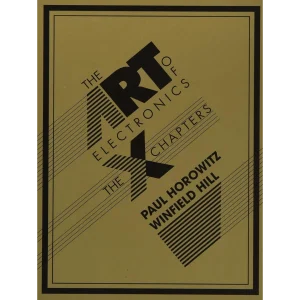
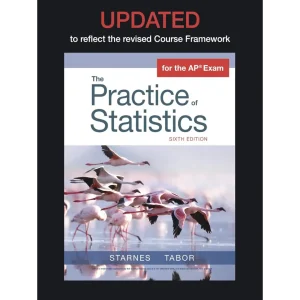
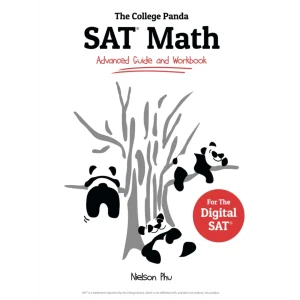
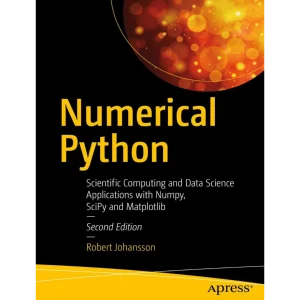
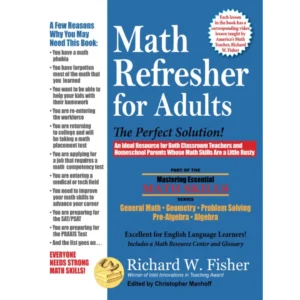
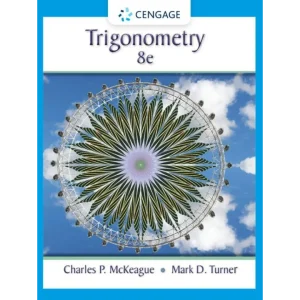
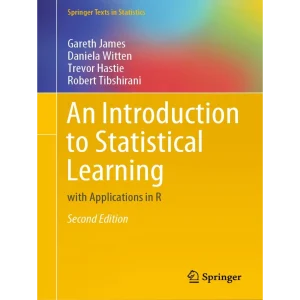

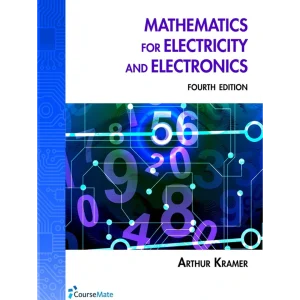
Frank W –
I can’t seem to put the book down. It offers new approaches to study and retaining information from a academic point of view. Mrs. Oakley, thank you for providing so much in terms I can understand. Normally when a person of your background write literature, all meaning is lost because of the high tech words. You kept it simple and related it to everyday life, that is what makes this book brilliant. This book hits on a serious problem with society today. No one knows how to learn correctly. A note to this generation of parents, get this book and help your child be more successful in life.
Craig M. –
As education devolves from teaching the three R’s to the three P’s (Political-Pedantic-Proctoring), this book is a must have. Transition from elementary/middle school education to high school is not easy for some. Part of the problem is the change from recitation to critical thinking isn’t taught. Those that have an innate talent go forward, those that can’t are mostly left behind.
I have purchased three copies of this book, for each of my children, to help them make a smooth transition to college life as it approaches (also as an inoculant). Highly recommended to women and girls who developed a mental block for math and science in high school or college.
Robert A. McKelvie –
Barbara Oakley’s brand new book should help just about anyone learn just about any subject better and more efficiently. Every chapter is full of valuable information and tips on various aspects of learning. High school and university students will probably derive the most benefit from this book but any adult interested in learning and any parent wanting to help a child do well in school will also benefit enormously from reading this book. I intend to read it a couple of more times myself. It has a fantastic index, too. I can’t imagine anyone who reads and studies the information in “A Mind for Numbers” being disappointed. Again, it’s applicable to any subject, not just math and science. A real treasure in my opinion and based on the latest research on learning available.
Patricia L. Claussen –
A Mind For Numbers, How to Excel at Math and Science, by Dr. Barbara Oakley, UCSD is an excellent book on learning how to learn using both Focused and Difused modes in processing and remembering new concepts. The book lays out in a clear and orderly manner new findings in how the brain works, and ideas for making the new concepts a part of ones long term memory by “chunking” focused study and repetition. I realize that this is just a superficial review but if you want to gain ideas in how to make new concepts such a part of yourself that you gain ownership of them then I highly recommend this book.
Scistitch –
Currently I am enrolled in Learning How to Learn, a free course on Coursea. After watching the some of the videos, I decided to purchase this because it was written by the creator of the course, Barbara Oakley. I enojyed both the course and the book immensely, as they go hand in hand (though at the time of this review I am not quite done the course yet). I am one of those people who have have flunked algebra in high school and have recently picked up mathematics and science in an effort to pursure a career in Computer Science. Having a background in digital art and painting, this is been a 180 in my life and thinking( though some of the concepts in this book suggests I may be able to use this to my advantage). So far everything in this book has helped me to grasp and understand concepts I am trying to learn. The key I think to getting the most from it is to take it as NOT another self help/you can do it/positive hokey book. Apply what she is teaching. I plan on using these concepts to self educate until I can get to school, then continue to apply it there. Good luck to everyone out there trying to make a difference in their lives, and as the Law of Serendipity states: Lady Luck favors the one who tries!
vmi940 –
no problems
Joel Ruffin, Sr –
Dr. Oakley does a masterful job in introducing the science of learning to readers in a way that is very engaging, practical, infectious and liberating. Her work provided me with a functional “User’s Manual” to this magnificent gift that I have called my brain. For years I operated under the cloud of misconception regarding my own learning abilities causing me to shy away from many subjects/careers because I thought I was just not good enough. Now, I realize those moments of “confusion” or what appeared to be my inability to grasp a subject, was a result of my uninformed approach to learning and my lack of understanding in how my brain actually processes information (i.e. focused / diffused mode of thinking, chunking and top-down thinking etc..). “A Mind for Numbers” has given me a renewed passion for learning and released my pent up thirst for knowledge and self-actualization. I highly recommend Dr. Oakley’s book. It “empowers ordinary people to do extraordinary things” through the power and gift of learning!!!
kidsyphilis –
I have heard the hall mark of a great teacher is to be able to take the distant infinite and present it in a way that even a child can understand.
Kurt –
Ignore the negative reviews about the “lack of equations in the book”- that is missing the point. This book is about how to approach learning a subject that many find difficult in a more effective way, so that you can ultimately master it. I have found this book extremely helpful in developing good study habits, and find that the strategies are general enough to apply to just about any discipline. I gave it 4/5 because I found the chapters to be a bit repetitive, though there are two or three good key points to take away from each of them.
Singingseven –
Having struggled with Honors Algebra 2 last year, my 16 year old daughter was advised that she should consider dropping down to Standard Pre-Calculus in her Junior year. She refused. Instead, she took the online course “Learning How to Learn” with Barbara Oakley and now is reading and re-reading her book. She just got a 97 on her first Honors Pre-Calculus course and believes that Dr. Oakley has changed her life. She’s applied these principles in other areas of study and finally gets the importance of sleep and is committed to improving her time management skills. Even her room is clean. Now her biggest issue is deciding what to do with her life because she feels like she can learn and do anything. I reassured her that this probably isn’t a problem! Between this book and Richard O’Connor’s Rewire, which supplemented her understanding of and strategies around procrastination, time management and bad habits in general, I believe she has really had a transformational experience. Every single school in the country should make this book required reading (or at a minimum, the online course – four hours total, one hour a week consisting of 3-5 minutes lectures which you can view at your leisure – who doesn’t have time for that???) for teachers, PTOs, counselors, parents and students.
Cecilia Hastings –
A extremely important book with very useful tips on how to learn something new.
irving ceron –
The name in my opinion is misleading. I think it’s more of a personal title for the writer than anything. It’s pretty much a self help book, backed by neuroscience and proven study tips. It takes a lot of intuitive and no intuitive approaches to become a better learner in anything ( not just math and science).
It’s a good read for those who need help with tackling procrastination and who aren’t very good at studying. It points out things you do that you aren’t aware of and helps you correct them.
I strongly recommend this book for those who want to become engineer majors and are having trouble attaining the confidence to tackle the math in an engineering curriculum. Although it may not necessarily teach you how think mathematically (I can suggest other books for that), it definitely does teach you about learning how to learn.
Jacques –
Good for a little bit of inspirational reading…
Rebekah J. –
Great book to go along with Dr Oakley’s Coursera course, Learning About Learning. Great option for anyone who wants to understand how to learn and retain your learnings more efficiently.This translates to very important life skills for everyone. Funny that the education system “teaches” you content, but doesn’t teach you how to LEARN. I think that this should information should be taught to every high school kid to serve as a foundation. This book is great for everyone from high school through adulthood. Especially helpful for parents as well looking for some methods to use with their kids. It also contains inspiring and motivational stories about success that would be especially useful for kids who aren’t aware of their capabilities yet).
This book isn’t about understanding your own learning style, it’s about teaching you new and proven methods (in addition to best practices and anecdotal advice from leading contributors in sciences and humanities).
Math Customer –
There’s a lot of useful information in this book for people looking for better strategies for complicated material. There’s also a lot of stuff that I didn’t find so useful – the chapters on test taking for example – aren’t really relevant if you’re done with schooling. I think what I enjoyed most in the book was the positive attitude – it makes you excited about learning things that would have been terrifying otherwise.
Vince –
great!
Azadi –
This book is great for anyone (teens and up) struggling with learning anything. It is easy to read & understand. It introduces the newest brain research related to learning and the best ways to use that knowledge to improve both the speed of learning and the understanding of topics you are working on. It also includes tools, such as some awesome flashcard programs that will play on almost any device – Anki is one. You can create your own cards and make your own. It uses spaced repetition, which is the best way to memorize (covered in the book). I have memorized a pile of information using this method, and it is staying with me!
The book also addresses procrastination & many great ways to trick yourself into getting around it – no, you do not have to use all your will power to do it! One method is the Pomodoro. It recommends that you to set a timer for 20 – 30 minutes, then just focus on the process of doing work (not on completing it!). When the timer goes off, take a break. Then either continue on the same subject, switch another, or do something else. It really works & removes the painful feeling of having to finish something right now!
I also highly recommend the Coursera.org course, “Learning How to Learn”, which goes over much of the information in the book, plus some. It’s free and all you need to do is sign up. You can just watch the short videos & check out the links to additional info, drop out if it’s too much, or you can get a certificate. Next one starts in Jan 2015.
I’ve been working on learning new things on my own for the last year and was making little progress until I read this book. I am now zooming along, using the tools and concepts in this book. I highly recommend it!
Renee Holt –
This is less a book about excelling and math and science and more a book about learning in general. The book is well written and easy to read. It taught me important concepts using what is the latest scientific knowledge about how humans learn. Also, notably, the author practices what she preaches: she tells stories that are compelling and hold our attention, she summarizes each chapter and then asks us to look away and reflect on the points we have learned in the chapter and encourages us to apply the concepts to a problem we may be grappling with in math and science (or life in general!). I highly recommend this book for all teachers and all students (or parents of students) for understanding how to learn.
jchin.tt –
A great guide for learning strategies!
Deborah R. Sorrill –
This is an excellent book. There are many techniques in here that will help a student to learn, if they are motivated. There is a lot on study habits. I would like to see a follow-on with more techniques related to innovation and diffuse thinking. While there are some good examples, I think we need more since our school system is biased toward focused thinking. Perhaps the flipped classroom idea will encourage more exercised which develop this skill, but I think we have just scratched the surface on new techniques to encourage innovation in school settings.
Dennis Mitton<span class="a-icon a-profile-verified-badge"><span class="a-profile-verified-text"></span></span> –
Oakley has written a wonderful book that I recommend to every student and to every parent of a young student. Her prose is easy and accessible for all readers and useful for all disciplines – not a skill germane to all engineers! My vote is that college freshmen spend their first week in class going through this book. Grades will improve.
Oakley begins with the most broad ideas – focused vs diffused thinking – and then adds greater depth and tips and tricks to the repertoire. She walks the reader through tools for understanding questions, memorization, and test taking, and closes with sections that touch on mastery. The real value of the book isn’t in helping Johnny pass his test next Friday – there is simply too much here to absorb in the short term – but helping Johnny to see a bigger picture of how to understand and apply learning. There is a lifetime of learning about learning here.
Oakley has an interesting resume that includes work at the South Pole, Russian and Slavic studies, and, finally, as a somewhat older student, engineering. There is connection through the book that you can attain what she has. She writes briefly about hating math in school and finally figuring out that she is ‘dumb’. But when, as an adult, she was put in different situations, she figured out how to excel even in areas she previously thought she couldn’t understand. This sense of enjoying what you once didn’t understand will resonate with many readers. Whatever your attitude and wherever you start out you can improve your skills through these tools. For what it’s worth, I like too, that Oakley is model for STEM studies.
I wish she touched on topics of grit and the real joy of learning. There is increasing confirmation that so much of success in anything is simply staying with it. We give up too early. Success often comes to those who refuse to deviate, who have a fire to make this happen. And then there is the joy of learning. It’s an odd thing, often seen in math, where the light bulb finally flashes and – aha – you get it! It’s a wonderful and almost addictive part of learning. I have experienced it myself and see it in my young children who are learning to read. Just sounding out a word correctly for the first time can be thrilling. And each success leads to others.
I’m a bit confused as to why the author and publisher chose to focus the book on math and science. There is so much good stuff here for all disciplines. Readers looking to figure out the Pythagorum Theorem by next week will be disappointed. There are better books for that. But learners who want to improve learning skills across the board will find real treasure here.
Four stars.
Magnus Itland –
This book was the textbook for the MOOC “Learning how to learn”, and that is a much better title for the book as well. It is not particularly in-depth on numbers, math and science, but is a quick and entertaining introduction to modern knowledge about how the human brain actually learns. It has a couple ideas that is on the outskirts of the scientific consensus in the field, but no real pseudoscience or the exaggerations you sometimes find in extremely popularized science books. Best of all, it lives as it learns, using the tricks on itself to make the content easy to remember. It is also “lean meat”, most of what you find there will contribute directly to teaching you how to learn easier, faster and for a longer duration. Unless you have a morbid fear of zombies, this book is warmly recommended and well worth paying for.
4pups –
Found my kids struggling a bit in school. Intelligent kids, but either working too hard or not hard enough. In both cases, not employing effective study techniques.
This book provided me an excellent framework to help them develop better techniques with which to improve their scholastic performance. Many of the techniques you will already know. However, this books brings them together in a cogent, easy to read and accessible manner even for teenagers. My kids and I formed a “book club” and read and discussed the book over several weeks. It has given us a basis or common language for discussing and applying the techniques of the book towards improving our performance while reducing the effort to achieve those results. I did say “our” performance as I’ve gained significantly from it myself.
Highly recommended.
Juan Redin –
It tells you things you may already know about the human learning process. But it does in a sensible way that makes you think why you failed to learn something and why your learnt that other thing you never thought you would.
One thing I am in disagreement with this book is the fact that somehow it is taken for granted that all humans have similar intelligence levels and it just a matter of learning better or worse. Learning makes your mind more agile and knowledgeable, but not more intelligent. Genius does not come like that. There are huge differences among us. Newton was not intelligent because he read and learnt… he simply was.
Gene Venable –
Take the free Coursera course, if you can. This book is dispensible, but nice to have. Valuable for NOT endorsing some learning fads, such as mind-mapping, yet accepting others, like memory palaces. You need to understand these basic ideas to keep up with the latest and greatest scientific ideas about learning.
Jacques Ferber –
A very helpful book for anyone who is aiming to improve their cognitive capability to learn and retain information (which should be everyone). While I had heard some of the information presented in this book before, it is a very easy read while still getting the information across, and I find myself using the techniques in the book to retain the information presented in the book.
I would recommend this book to anyone, but particularly to high school / college students, specifically those moving into Math or Science. I am a full time worker and plan on using this information as I encounter new subjects at work and as I continue to take classes to better myself and go back to school – I highly recommend it.
Neil Taft –
I find this book has new affirmations about some things we, as learners have hit upon by trial and error. Professor Oakley writes like she presents, with great interest and credibility. I am not into Science or Math that much but I love to learn and this helped a lot.
Terry –
This book has the potential to open people’s minds to the possibilities offered by math and science. However, the book really is about how your brain works in retaining information.
My fear is that the title is deceiving and the book is abstract, almost obtuse in the beginning. At the beginning of the book, I thought I had been duped and thought several times about stopping. Lastly, I am that student who has spent a lifetime struggling due to a poor foundation in math. After reading the book, I have New questions about where to begin 40 years later. I am still glad that I read it. It is a book that 10th graders and freshman college students good benefit from. If you want to catch a fish, bait, location, instrument, and time of day would be logical preparation. Marketing is topic may lead to helping more people. With all of that said, I am going to give it a try.
Natalie –
Common sense and some not so common insights into how the brain processes and stores information, in a friendly and accessible style.
David Wilson –
A very interesting read. Slightly misleading title, in my opinion, as there is no mathematical thinking involved – rather its about understanding the learning process itself and neuroscience research behind it – for which wasn’t my motivation behind buying the book. I then discovered that there is a free 4-week Coursera course called “Learning how to Learn” which I suppose is based on this book and is presented by the author herself.
In truth I found the book and the subsequent online course utterly fascinating, albeit nothing really to do directly with mathematical or scientific ideas which is what I had originally sought.
So, this is a book about understanding how you learn, how you can best facilitate your brain’s capacity to learn, how it can be equipped to deal with the more abstract and technical ideas that form maths and science, but in truth this book helps in all general aspects of learning and study.
SMAS –
Helga Pearson –
As a virtual math illiterate, my former self would have never have even picked up this book. Math and me? Oil and water! However it was the recommended reading for Dr Barbara Oakley’s Coursera course, ‘Learning How To Learn’ and so I bought it. You see, although this book is purportedly about numbers, it’s actually about changing your approach to learning altogether. Given the right mindset, technique and perseverance, you can learn just about everything. With practical and and easy to implement advice Dr Oakley and her book, open a door to a world that for many self-identified creatives such as myself, was locked and heavily barred before. I cannot recommend it highly enough. Thank you Dr Oakley, I will be forever grateful.
Jan 920 –
Cannot say enough about this great book! It the the “go to ” book for anyone who is a student, teacher or just wants to use their heads more efficiently! Wish I had read it about 20 years ago. Cannot wait to get a book group going at the library with this excellent “how to” manual for learning. Dr. Oakley’s interviews with experts from all disciplines make this book all the more engaging for her readers. She offers systems for learning just about anything along with techniques to overcome all the obstacles any learner might face.
This book is a real keeper to read and reread.
Tom & Sunita –
I bought this book because it was suggested as an option for the Learning How to Learn course in cousera.org. Reading the book and taking the course at the same time gave an extra dimension to see the material both in a book and in a video lecture. This book is excellent because it’s practical and it works. Dr. Oakley uses the very suggestions she gives in the book — by prompting the reader to look away and recall information and explain that information is given by “interleaving” it to make it easier to learn. You see right away how the techniques work by trying it out as you go, chapter by chapter. This book works because my memory has improved – I can see that my working memory has been “tuned up” because I remember more things easily. I also helped my daughter in Grade 4 study for a test using some of the techniques including Pomodoro technique and “chunking” and it made studying less stressful for her. These are great tips, well explained and easy to put into use. The value in this book is well worth the price.
GiorgosGreece –
A very nice book about how to imrove your learning abilities and habits. It uses a simple, comrehensible language and it conveys its main points in a fascinating and attractive way.
Jack Conway Jr. –
I discovered this book through the MOOC and I wish I had this 20 years ago. The investment in reading this book will have a quick “payback” period in your work, school and life interests.
Math Customer –
The book builds a solid foundation for understanding an approach to learning and how to manage various challenges in the process.
Mauricio Marengoni –
The book is good but the author repeats herself too much along the book
Earl Switzer –
Please don’t be under the impression that once you read this book everything will be automatically easy. While it is worth the time to read, it still takes work. This book comes with simple techniques such as the Pomodoro Timer and different ways of improving your memory. I believe most will not use the memory techniques because they require a new way of thinking and hard work. They also do not seem to fit in all scenarios. I learned about this book while taking a free online course from Coursera titled “Learning to Learn.” It is only four weeks long and great for students in high school to the retired person who loves to stay busy.
SGF –
I was introduced to this book through the Dr. Oakley’s Coursera course, Learning How to Learn. I’m a senior engineering major with a good GPA, and so I initially thought I wouldn’t get much out of learning how to learn. I was wrong. The concepts taught in A Mind for Numbers and Learning How to Learn are widely applicable and very practical.
Don’t be put off by this book’s title if you’re not looking for math or science help. Regardless of what you’re trying to learn, you will find many useful pieces of information in this book. This book taught me how to be more efficient with productivity strategies such as the pomodoro, focusing on process over product, and the importance of recall.
One thing in particular the book helped me with is getting back on track in learning to play the guitar. I attempted to learn the guitar about a year ago and I got discouraged. I stopped playing and my guitar gathered dust in a corner. After reading this book, I realized my problem was that I focused too much on product rather than process. Instead of trying to play the guitar for 25 minutes a day, I would instead try to learn how to play a song in one go. This mindset leads to discouragement and procrastination.
Ultimately, this is a book for people who want to improve their ability to learn. It’s a book I’m really glad that I read now rather than later. I feel like it will make a big difference with anything I’m trying to learn. If you’re still not sold on buying this book, you can get a taste of it in the Learning How to Learn Coursera course. Dr. Oakley uses this book as her source material, so if you like the course, you’ll like the book.
Bill Conklin –
If you enjoy learning new material as a challenge, or if you are a student who needs to be able to master and even enjoy solving difficult problems, this book is for you.
I bought the book to help my grandson learn how to succeed in a difficult engineering curriculum. And he and I discussing these ideas has borne wonderful fruit.
And surprise of surprises, I also find the ideas here very helpful to me in reading and learning more about my hoppy of playing poker.
The book is easy and enjoyable to read. You won’t be sorry!
Bill Conklin
Mom with Ph.D. –
This is worth every penny. This is the best study/work skills book I’ve ever read. The title of this book should really be “how to get things (anything) done!”
The book’s structure is very clear. One chapter is devoted to a different aspect of how to approach information and come up with creative solutions. Each chapter has multiple examples, visual, numeral and verbal examples. The questions at the end of each chapter help you both focus on the chapter as well as remember the ideas covered on the chapter.
This is an excellent book. The author did the world a public service in writing it.
Ben Lis –
I read this book as part of my participation in Oakley’s Coursera online class “Learning How to Learn” and I strongly recommend the combination. The book very effectively reinforces the material in the online lectures. If you are taking the class, you should buy the book. And if you want to learn how to study more effectively, you should take the class.
It should be noted that the techniques described in the book, and the class, are applicable beyond the study of math and science. In fact, Oakley’s focus on effective techniques for overcoming procrastination has great value for everyone, student or not.
One last note: if I had read the book without taking the course, I would not have given it five stars. Probably four.
T. L. Cooper –
A Mind for Numbers: How to Excel at Math and Science (Even if You Flunked Algebra) by Barbara Oakley, Ph.D. reaches far beyond math and science and even beyond learning. Oakley explores techniques for learning more efficiently and deeply based on her own experience overcoming her difficulty learning math. A Mind for Numbers explores the importance of focused mode and diffused mode in the learning process and how the two support one another in the learning process. Oakley delves into how our brains chunks material for deeper learning. She addresses procrastination, reasons for procrastination, why procrastination is unavoidable, and tips to effectively address procrastination using techniques that allow us to give focused attention to priority tasks and use diffuse mode by switching tasks. I recognized several techniques that I employed during my college years and even some that had worked their way into my writing routine though I’d never thought of them as techniques in quite the way she described them. As I read through the book, I saw ways I could use the techniques in the book to improve my research as well as my writing. A Mind for Numbers is a very interesting exploration of the way the brain works and how to more effectively be productive whether studying or working. A Mind for Numbers is a well written, easy to understand, inspiring book of insights into not only the process of learning but the process of being more effective in any endeavor that requires focused attention, time to think, and expansion of one’s knowledge base.
Kathleen –
The book is full of ideas for how to learn. While I have always known the importance of giving it time for new ideas to sink in, the author explains why this is so. The author also gives practical ideas for why it is important to take breaks in learning and what you should do during the breaks. There is a coursera course (see coursera.com) called Learning How to Learn which uses this book. Videos from the coursera course are available on demand at no cost. I am working with my teens to have them improve in how to learn. Advising a teen is a perilous endeavor. It is much easier to have them work puzzles in the book as a way to learn!
Samilton –
I discovered this book while taking the free Coursera “Learning How to Learn” online class. The book is insightful and helpful and presented in a way that is not boring or too dense and is not at all intimidating. It is a great book for all ages of people wanting to enhance their learning, especially in math and science, but can use the information in regards to any subject. Would be a great book to base a class for struggling kids in middle school and high school. Armed with the knowledge and understanding this book provides it could really set them up to learn more efficiently and build their confidence and help them succeed, especially through high school and beyond. I highly recommend this book for anyone wanting to understand how their brain learns and how to improve their skills in math and science. Barbara Oakley does a wonderful job creating a user-friendly book that is not intimidating and instead is interesting and enjoyable to read.
Riaan Steenberg –
I learnt a lot about how I learn in this book. It is well written, researched and gives an deep insight into how to study.
I thought it would be a little bit more about math as such but then I realized that it is more about how to think and learn.
I realized that I had been doing it wrong for a while and since reading this I have started learning all sort of subjects and areas in a whole new way.
Thank you to the author for a really interesting approach.
Gene Freeman –
Well written book. I was searching for a good book to provide pointers on developing study habits. I thought this book was very engaging and has a lot of useful tips on improving study habits and avoiding pitfalls that divert attention from getting things done. The author speaks about her own experiences and brings in suggestions from other experts on study habits. A definite must read for high school and college, and wouldn’t hurt for those in jobs who just want to work on maximizing productivity. Book came brand new in just a few days after ordering.
Captain Abrecan –
It is a killer intro to how humans habituate behavior for survival. The brain contains chains of neurons that can represent stuff. Stuff such as ideas, words, feelings, identity, physical actions et cetera. With use these connections become swollen. A habit that becomes maladaptive by disrupting regular behaviors could be called an addiction, but it is the same natural process. A crack addict has a swollen chain of neurons messing with neurotransmitters which make his organism feind for crack. The behavior he habituated has become maladaptive.
Oakley assert these connections form most efficiently via agency (generating mental andor physical content). Therefore the ‘best’ study habits incorporate behaviors that game this natural system. She details a fool-proof 7 step process you can easily use to brainwash your organism into any behavior (math homework according to the title). The results are compared to existing study methods and she details why and how some study habits are destined to fail. It’s all backed up by science. Frankly it’s a student’s guide for using Tony-Robbins esque Neuroscience to habituate better studying habits. It’s worth the money if you don’t already understand some basic neuroscience. Otherwise it’s a bore & it doesn’t teach any math theory. Again it’s a beginner’s Neuroscience title.
Lisa –
This is an excellent little book that teaches you the most valuable skill in the world: learning how to learn.
I went through, and was somewhat traumatized by, the traditional school system. It wasn’t that I was a bad student (I was valedictorian actually), but that it taught me terrible habits that didn’t serve me in real life. I left school with a rigid fixed mindset that made learning laborious at best and impossible at worst; and even though I hated the traditional classroom environment with its handholding and hoop-jumping, I was utterly paralyzed outside of it. I think on some deep emotional level, I didn’t believe I could learn anything new. (Hence the fixed mindset. For those who don’t know what I’m talking about, google “fixed vs. growth mindset”, and for heaven’s sake, embrace the latter!)
I have struggled for years to retool my mental habits, and I’m finally getting to the point where I feel free and agile again. This book was incredibly helpful and would have been even more so had I read it earlier in my journey. Even now, it taught me a lot, mostly the science behind the techniques I’d already discovered but also a few new tricks too. This book (or something like it) will be required reading for my kids, and I’m planning on structuring their entire education around these skills (we’re homeschooling). To me, it’s way more important than any math concept or classical piece of literature, because if you know this, you can go get that at any time.
This book is no doubt helpful for school, but I would argue that it is even more essential for your career. Today, continued learning, both on the job and in your spare time, is becoming ever more critical for long-term career success. In IT, things move so fast that you should expect your skills to be outdated by the time you graduate! If you can’t keep learning and fast, you’re nowhere.
I did have a couple of gripes with the book: Structurally, I felt like it sort of went in circles. Topics were brought up again and again, each time going a bit deeper into it. It sort of goes along with the theme of spaced recall, but I like my books more linearly organized so that *I* can do the jumbling. 🙂 The other is that it’s very academically focused with most of the examples drawn from college students. That makes sense as the author is a college professor. However, for most people, college is but a short chapter in the story of life, and I would have enjoyed reading more examples drawn from real world careers and industry. (See above paragraph.)
Okay, enough talking … go buy it!
Karol Cyrklaff –
This book inadvertently gave me a tremendous toolbox to use in my long and arduous struggle with depression. The tone is fantastic, the ideas are presented logically and even in a fashion that incorporates the ideas Oakley is trying to teach. I already bought two more copies to give to other people.
It’s also worth noting that this is the first book I’ve gotten myself to read in about two years. Long story short, I just didn’t feel like there was a book worth reading (granted this is a crazy thought) until this one. It has definitely helped me take control of myself and point my life in the direction I want it to go.
JOYacademyBlog –
The author of this book admits to not being able to read a clock in her elementary school years, yet she did deem herself a “failure” and eventually wrote this book on learning and comprehension. I like to think of it as learning how to learn and eventually having a passion for learning. We don’t often learn (put into long term memory) things we are not passionate about, and sometimes it takes hard work and training to learn how to have that passion to learn.
I am a student majoring in the sciences who suffered as a child with basic math and reading. I failed miserably in school and did not do well until after I had my daughter at the age of 19 and entered into full time college where I put my mind to things, determined to accomplished them; graduating with a 4.0 GPA. This book is something I wish I had before I started my endeavor in schooling because it would have benefited me mentally and even helped retain information. I recommend this book for every person; student or not; just read it to sharpen your mind. For students, I recommend studying this book as though it were a textbook and taking notes. I had a notebook specifically for this book when I realized it was a book worth taking notes from.
As a mother, homeschooling a dyslexic daughter, I appreciate her truthfulness which gives hope for my 8 year old daughter who struggles to read a clock, but excels in engineering and design as well as having a complex vocabulary (though a struggling reader) and horsemanship. I am now in the place to teach the passion for learning, and teaching how to learn to another person. This book will surely help me through the experience.
Agustín Estévez –
Don’t expect math classes inside this book. What it will give you is the right way to actually learn from the books that have those classes.
Maybe I would have selected another title for it because it actually helps in learning anything.
I took the coursera class “Learning how to learn”, which this book is a companion for and I’m glad I invested this time. Now I will apply it to my own area.
You go through this book thinking “she’s right, I’ve experienced that… And that too…” With every tip you will find that, when you inconciunsly applied it in the past, it helped you learn or solve problems, you just haven’t group them, like in this book, or applied them consistently.
Lee Scott –
I found this book when I took the class “Learning How to Learn” on Coursera. Both the class and the book are excellent in explaining the best methods and tools to use when trying to learn anything and retain the knowledge. I must emphasize the word “learn”. This book isn’t about memorization or simply how to pass a test… Although it will help you pass a test! It is about getting to know the material you are learning and how this knowledge can broaden your thinking and learning about other topics and areas of life as well.
Anyone in school or preparing to take any sort of certification exam will benefit from this excellent book.
Dawn Nguyen –
I bought this book for a Coursera class that was taught by the same author/professor. I really enjoyed reading it and have actually used some of the techniques that she taught in this book to study for the GRE and to go about with everyday life. If you’re a structured person that function well having structures in your life, then this book is ideal. However, you have to do as she says. Otherwise, it’s not going to be very effective (it’s like following a diet guide). This book really helped me to get back on track with my studying habits and life in general. It reminded me that I can do math if I tried and practice. This book was similar to how my mom would have me study math as a kid and I didn’t even know a single English word.
D. Carr –
Well-written, easy to grasp concepts, useful, and you can start realizing the benefits right away! And don’t let the title fool you–the benefits from using these insights go way beyond doing well in math and science courses.
Just the part on procrastination alone can really improve your life–I’ve never seen procrastination covered so succinctly, in straightforward language, and practical guidance that can be followed by anyone. I started using the suggested planner/journal method right away and find it useful and straightforward to apply.
The learning strategies and methods are likewise written in a compelling, readily accessible manner. Professor Oakley is a gifted writer (she first lived and learned many of these techniques the hard way), and has a rare ability to translate and summarize a vast literature on learning and brain science–all while making it easy to understand. She picks the important aspects, and then organizes and communicates these ideas in a plain-spoken manner accessible to all. I wish I could have read this book in high school or college, but glad to benefit from it even now, long after college.
There is also a “Learning How to Learn” course available on coursera.org that is based on this book, and presented by Barbara Oakley–highly recommended.
Mostyn –
I was a straight A student at high school, but at university my grades started to droop. Now reading this book and reflecting on it I can see what happened. At an early age I happened to develop many of the skills and strategies described in this book. Then being successful I stopped developing further skills.
Oakley describes with clarity a lot of the ideas and strategies that almost unthinkingly I use on a daily basis. But she also describes many strategies that I never developed, which eventually held me back. She does this from a neurological standpoint, describing in terms of neurological pathways, how we think, and how we strengthen pathways to develop memories and concepts in our minds. As a scientist I have a lot of respect for ideas that come from the most fundamental principles, from the most basic level of understanding.
While the book alludes to maths and science, really it describes how almost all learning happens. It doesn’t describe mathematics specific strategies for coping with algebra or geometry. It is far more general.Indeed, it is general enough that it could really help with learning languages, history or sports with a bit of creativity.
Oakley describes why too much focusing can hinder learning (it reinforces current ideas and memories and prevents the creation of new ones); how to chunk complex ideas so that you can memorise and use them effortlessly; and how to memorise large amounts of information..
Now as a teacher I plan to use this to help my students to become better learners. Hopefully it helps them to become better learners than I ever was, and allows them to reach far greater heights.
HYE –
This book is packed with good suggestions about how to study more efficiently for high school students. Today’s high schools are really out of control in piling up workloads on students, in the hope of getting a few of them into Harvard or MIT or Stanford and raising the school profile to attract new parents and students, completely disregarding the destructive effects on the majority of the students. The economic and cultural forces behind this trend is hard to resist, but if we have to feed our children through this meat grinder, we should at least equip them with the right tools to cope, and this book provides many useful ones. I also recommend the author’s lectures in Coursera on the same subject.
J. Wong –
This book combined with Barbara Oakley’s course on Coursera contain powerful information and ideas that can literally transform your life for the better. It is no wonder her course on Coursera is the most popular course. She basically describes the obstacles many of us have in learning new material, and ways to overcome those obstacles. The concepts she describes for learning how to learn are relatively simple, but they can empower us to reach our inner potential. Dr. Oakley is truly and amazing person for writing this book and creating the Coursera course. Highly recommended for those who want to reach their full potential!
Reluctant Consumer –
As I read this book I became progressively more angry because I was, for the first time, learning solid study skills. Though I spent 19 years in school (k-12 + 6 years of college), most if not all of this book’s material was new to me. I read A Mind for Numbers, Make it Stick, and How we Learn in rather quick succession. All three books cover more or less the same content. I found A Mind for Numbers to be the most approachable and an excellent starting point for anyone. How we Learn (by Benedict Carey) seemed to be the most science-heavy, and Make it Stick (by Peter C. Brown) fell somewhere in between.
I also highly recommend Barbara’s MOOC (the most popular Massive Open Online Course EVER!) – Learning How to Learn
[…]